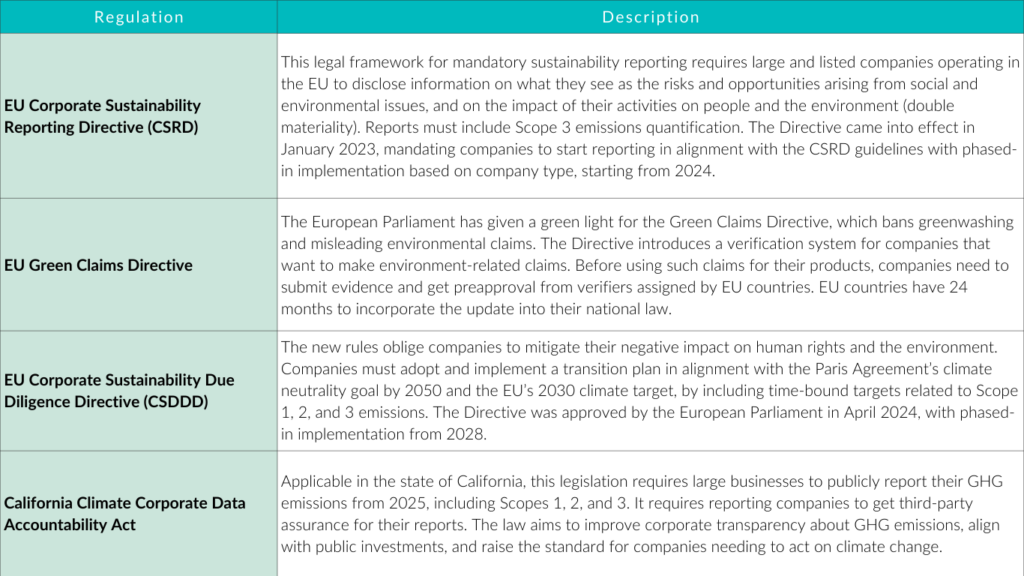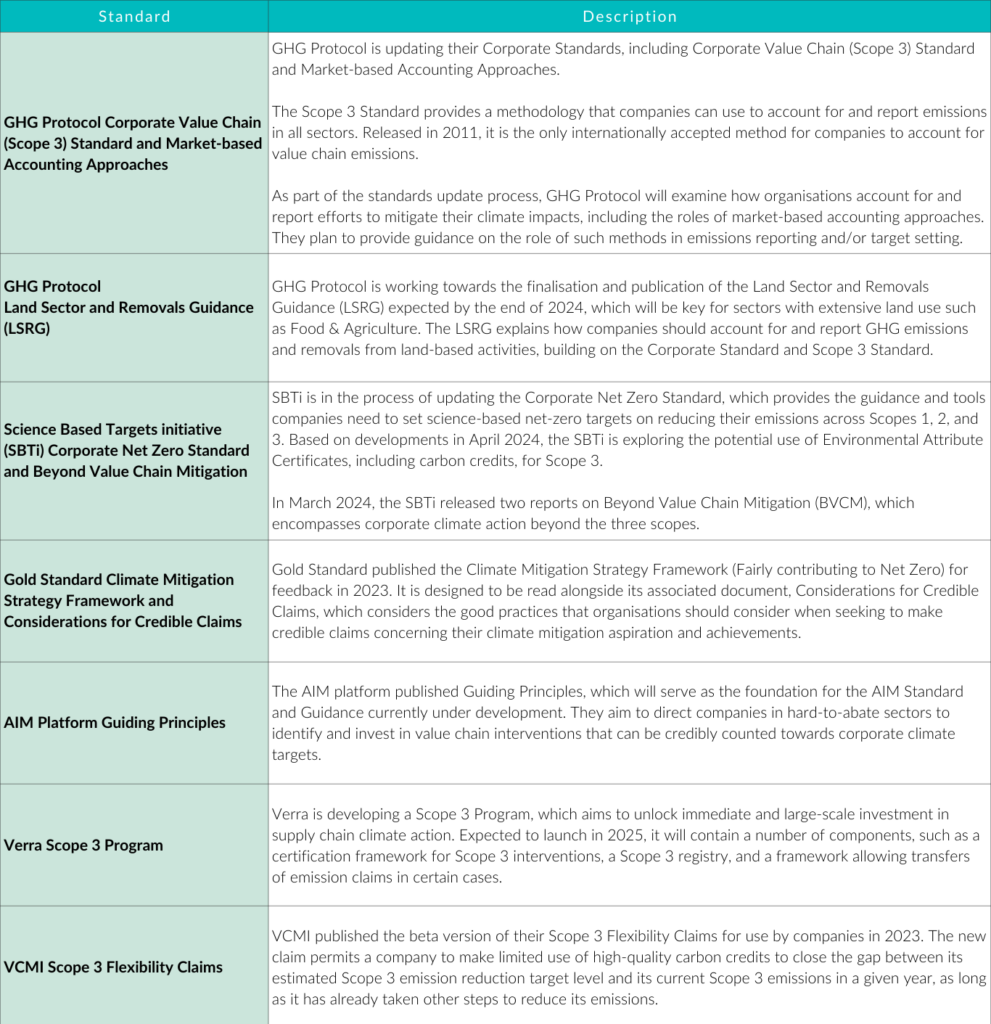Making your net zero claims credible
Dino De Francesco
In today's corporate landscape, the accuracy and credibility of climate claims are vital. Companies are increasingly setting ambitious climate targets, while the scrutiny around these claims has never been stronger. Misleading or unsubstantiated claims pose a serious risk to the reputation and customer trust of companies, and increasingly also to regulatory compliance.
Scope 3 emissions, involving diverse stakeholders along company value chains, pose a complex challenge for claims. By definition, each Scope 3 claim is essentially a “co-claim,” as it involves the emissions of another entity's Scope 1 or Scope 2. This means that organisations need to proactively collaborate and invest in solutions.
However, the landscape is highly dynamic, and the absence of clear guidelines complicates the task further. With much of the focus on individual organisations’ efforts, there is a gap in existing guidance on who has the “right to claim” shared interventions or investments, or the equitable attribution of the mitigation outcomes.
This gap highlights the urgent need for guidance on co-claiming to ensure fair investment in decarbonisation efforts as well as enable coordinated and scalable action. This is why the VCI is releasing its new Claims Guidance, based on a co-creation process with over 60 organisations who took part in the cross-sectoral Claims Lab in 2023.
Considering the quickly evolving landscape, this article outlines the current regulations and standards on Scope 3 reporting and claims, and the remaining gaps that our new guidance aims to address.
Scope 3 regulation
The regulatory landscape for Scope 3 claims is rapidly evolving, driven by regulations like the European Union Green Claims Directive, the Corporate Sustainability Reporting Directive (CSRD), Corporate Sustainability Due Diligence Directive (CSDDD), and the California Climate Corporate Data Accountability Act. These regulations mandate companies to report Scope 3 emissions, emphasising transparency and credibility in their claims and disclosure practices. It is important to note that these upcoming regulations require verification of greenhouse gas (GHG) emissions data and related claims. In jurisdictions with such regulations, having actionable guidance on co-claiming is crucial for auditability and compliance when companies report joint interventions for emission reductions and removals in their value chains.

Corporate standards for Scope 3 claims
While regulations are enforced in a given jurisdiction, standards are voluntary but often needed to legitimately operate in a market. Significant developments are underway also for voluntary standards. Revisions are being made to the GHG Protocol Corporate Standards (including the Corporate Value Chain (Scope 3) Standard and Market-based Accounting Approaches), while GHG Protocol is also working towards the finalisation of the Land Sector and Removals Guidance expected by the end of 2024. On its part, the Science Based Targets initiative (SBTi) is revising its Corporate Net Zero Standard, which has an emphasis on Value Chain Abatement. The process is ongoing throughout 2024. In their current forms, these standards provide limited information and guidance regarding multiple organisations jointly implementing an intervention, especially where traceability is imperfect.
Meanwhile, standards active in carbon markets are also working on approaches for Scope 3 emissions. Gold Standard, Verra, and the Voluntary Carbon Markets Integrity Initiative (VCMI) have each been playing an active role in the Scope 3 and claims field. Gold Standard published their Climate Mitigation Strategy Framework and the Considerations for Credible Claims, VCMI published the Scope 3 Flexibility Claims and Verra is actively working on developing a Scope 3 Program. The heightened scrutiny over the past years on the carbon markets emphasises the need for additional guidance and new/updated principles that reflect the reality of joint interventions, upholding credibility and integrity.

In parallel, sectoral platforms and industry organisations play a crucial role in multiple sectors in coordinating programmes and facilitating access to finance for Scope 3 interventions. However, in the absence of clear guidance on co-claiming, there are challenges for defining who has the “right to claim” the reductions achieved through shared interventions or investments.
The dynamic landscape, characterised by continual updates in standards and ongoing regulatory developments, requires adaptability. There is a need to establish robust frameworks that can accommodate future changes in the landscape, while responding to the pressing need for guidance on co-claiming to enable collaboration and joint interventions. This is what the VCI Claims Guidance aims to do.
What is the VCI Claims guidance?
In 2023, the VCI hosted the Claims Lab, which brought together leading organisations to find credible solutions for making claims in joint value chains. As an addendum to the Value Change Initiative Guidance 1.1 (2021), this cross-sector guidance Building the case for value chain interventions: enabling credible co-claiming of impact and investments aims to provide principles and actionable tools for organisations to implement and claim joint value chain interventions. It does so by enabling a wider systemic perspective and adaptability to future changes in the landscape.
Scope 3 language has evolved since the GHG Protocol’s standards were published, with this guidance proposing new definitions and concepts to help address the gaps in guidance. The regulatory and standards developments outlined above were monitored closely throughout the process to ensure the guidance is in line with international standards.
The Claims Guidance lays the foundations for a comprehensive co-claiming framework. It provides an understanding of co-claiming and the challenges it presents, as well as the levels and types of claims. Furthermore, it establishes foundational principles and actionable criteria for ensuring the credibility and integrity of co-claiming. The conclusions are translated into an operational four-dimensional model for the validation of robust and credible co-claiming. The guidance also draws on cases from the Food & Agriculture and Apparel & Footwear sectors, leveraging existing collaborations within value chains and exploring the business case for co-claiming.
VCI will continue to work on these topics through our ongoing Working Groups in Food & Agriculture and Apparel & Footwear. Join us to pave the way for credible climate claims in the value chain.
Interested in making credible and accurate Scope 3 claims?
Learn how your organisation can (co-)claim climate impacts in your value chain.

